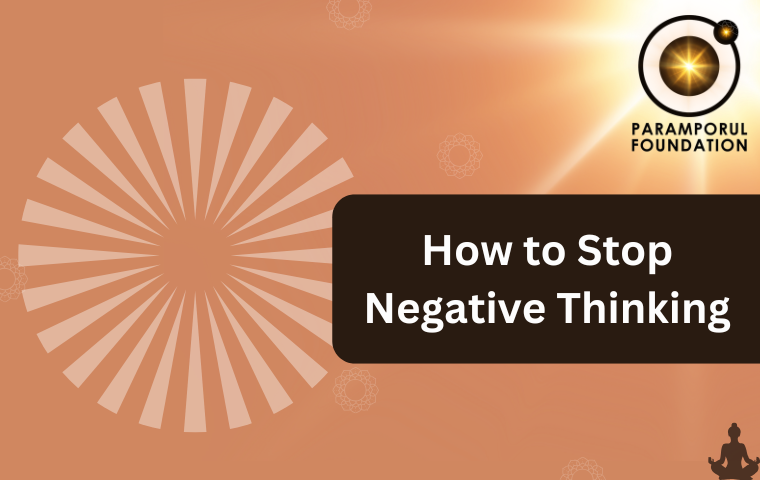We all face moments when negative thoughts creep into our minds, but when these thoughts become persistent, they can significantly impact our mental health and overall happiness. Negative thinking can make challenges feel overwhelming, cloud our judgment, and stop us from fully enjoying life. If you’ve ever found yourself stuck in a cycle of pessimism, you’re not alone.
The good news is that with the right tools and strategies, you can take control and shift your mindset. In this article, we’ll explore how to stop negative thinking by recognizing common thought patterns, challenging unhelpful beliefs, and practicing techniques to foster a more positive and balanced outlook on life.
What Is Negative Thinking?

Negative thinking refers to the automatic and often pessimistic thoughts that cloud your mind. These thoughts can make small problems seem big and stop you from enjoying life. Common patterns include:
- Catastrophizing: Expecting the worst, even when it’s unlikely.
- Overgeneralization: Believing one bad event will repeat itself.
- Personalization: Thinking everything is about you.
- All-or-nothing thinking: Seeing things as either perfect or terrible.
How to Recognize Negative Thoughts
The first step to prevent negative thinking is to notice when it happens. Ask yourself:
- Am I overly critical of myself or others?
- Am I expecting the worst?
- Am I stuck in the past or worrying excessively about the future?
Jotting down your thoughts can assist in recognizing patterns and triggers.
How to Stop Negative Thoughts
Negative thoughts are often distorted or untrue. You can challenge them by:
1. Questioning Their Accuracy
Ask yourself, “Is this thought really true?” or “Do I have proof for this?” Often, negative thoughts are based on emotions, not facts.
2. Reframing Your Perspective

Replace negative thoughts with positive or realistic thoughts. For example, instead of thinking, “I always fail,” reframe it to, “I’ve succeeded many times before, and I’ll try again.”
3. Practicing Gratitude

Focus on what’s good in your life. List three things you’re thankful for each day to shift your mindset.
4. Be Kind to Yourself

Treat yourself with the same kindness you’d show a friend. Avoid harsh self-criticism and practice self-compassion. Keep in mind that no one is perfect, and making mistakes is a natural part of the learning process.
5. Practice Meditation

Meditation is a powerful tool for managing negative thoughts. Regular practice can help you cultivate awareness, reduce stress, and regain control over your thinking. Guided meditations focused on mindfulness or compassion can be especially helpful for quieting your mind and letting go of negativity.
6. Surround Yourself With Positivity
The people and content you engage with influence your thoughts.
- Spend time with positive people: Surround yourself with those who uplift and inspire you.
- Limit exposure to negativity: Avoid excessive news or social media that focus on fear or drama.
7. Focus on the Present Moment

Negative thinking often comes from dwelling on the past or worrying about the future. Use mindfulness to stay grounded in the present.
- Practice deep breathing meditation.
- Use meditation apps to focus your attention on the here and now.
- Pay attention to your surroundings and what you can see, hear, and feel.
8. Write Down and Release Negative Thoughts

Writing down negative thoughts and physically discarding them (like throwing the paper away) can reduce their power over you. Creative outlets, such as painting or journaling, can also help release negativity.
9. Build a Healthy Routine
Develop habits that encourage a positive mindset:
- Start your day with an uplifting morning routine.
- Exercise regularly to boost endorphins.
- Sleep well to maintain emotional balance.
10. Celebrate Small Wins

Recognize and appreciate every step of progress, no matter how small. This will encourage you to keep practicing positive thinking and building healthier habits.
11. Seek Help When Needed
If negative thoughts continue to interfere with your life, consider acquiring help from a therapist or counselor. They will provide valuable tools and guidance to help you regain control.
Take Control of Your Thoughts
Negative thinking doesn’t have to control your life. By recognizing and challenging your thoughts, focusing on the present, and surrounding yourself with positivity, you can create a healthier, happier mindset. Begin with small steps, remain consistent, and be patient with yourself; you are on your way to meaningful change.

